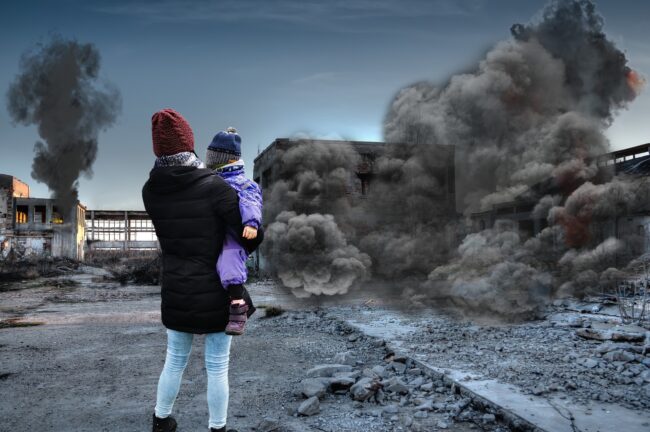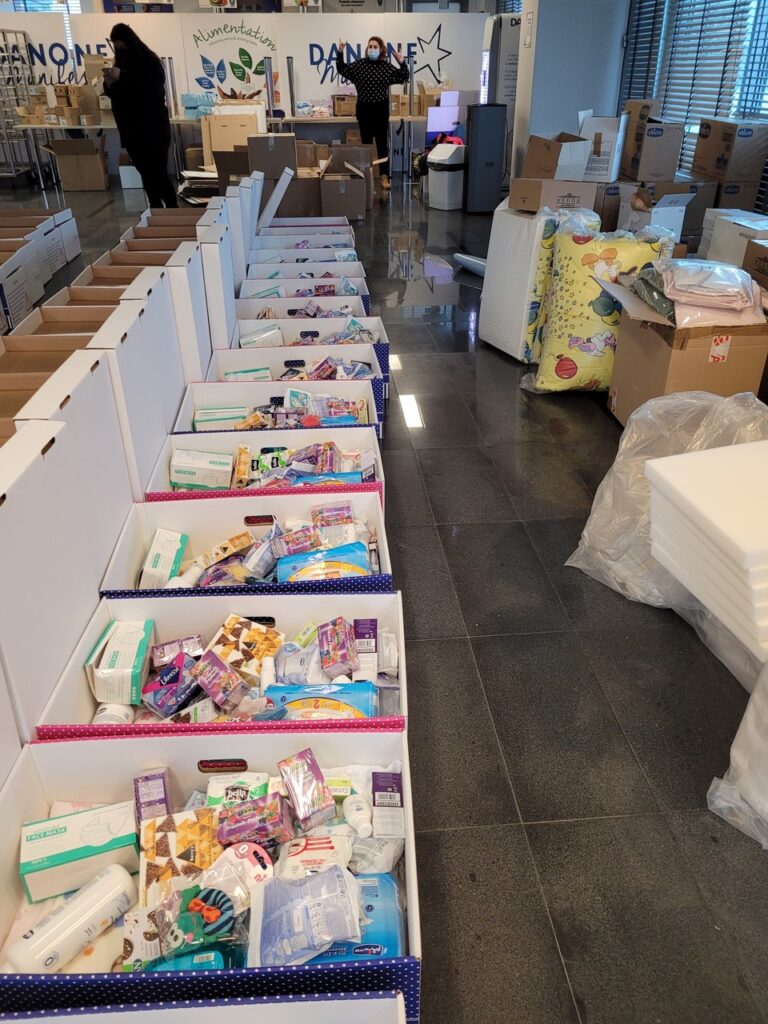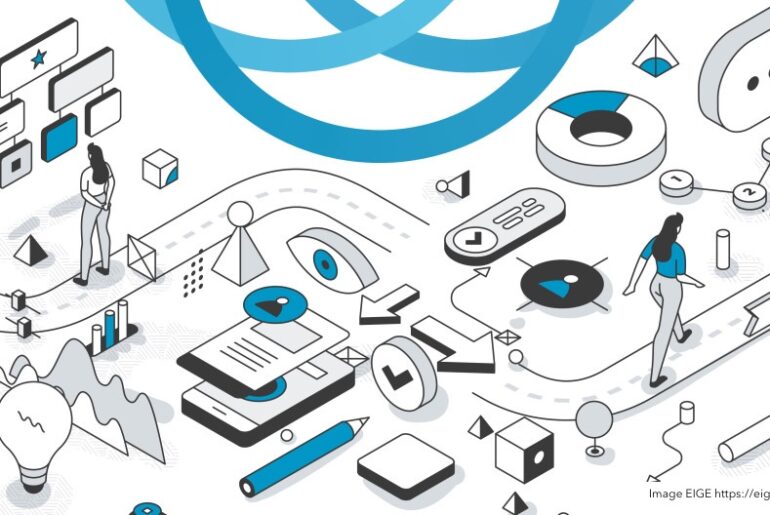Our member in Romania acts for Ukraine mothers & children
21.06.22
The ongoing conflict and resulting humanitarian crisis in Ukraine has had a devastating impact on the mental and physical health of mothers and their children, on both those who have fled and those who have stayed behind.

This is an especially acute issue because most of the people who have left the country are women and children (EU Solidarity Strategy to respond to the Ukraine crisis policy paper, Social Platform). MMM’s grass roots member, Mame Pentru Mame, based in Romania, has reported on the effect on mothers who have fled, and what they need as a matter of urgency. The organization is qualified to speak on this issue given Romania is a country that has received a large influx of Ukrainian refugees and has therefore been at the frontline of witnessing the struggles of mothers.
has reported on the effect on mothers who have fled, and what they need as a matter of urgency. The organization is qualified to speak on this issue given Romania is a country that has received a large influx of Ukrainian refugees and has therefore been at the frontline of witnessing the struggles of mothers.
In terms of the impact on physical health, Mame Pentru Mame reports that the Ukrainian mothers they are helping, are in urgent need of pregnancy follow-ups, delivery and breastfeeding support. This lack of access to breastfeeding support and counseling has made it necessary for many babies to be fed formula milk which limits mothers’ choices about how they want to feed their child.

In Romania, there are local initiatives to help Ukrainian women who give birth as refugees. However, the National Immunization Program for Romanian Infants does not cover neonatal vaccines for these infants. This means that parents need to buy the vaccines, which are administered by pediatricians.
Mame Pentru Mame also reports that it isn’t only the physical health of mothers and children that is affected. Their mental health and wellbeing is compromised too. Refugee mothers are not just at an elevated risk of developing mental health issues due to barriers to healthcare, as pointed above, but also face high rates of exposure to sexual violence.1
According to the UN Special Rapporteur on the human rights of migrants and the American Psychological Association, the traumatic events that refugee children experience can have severe and long-lasting impacts, including PTSD and the fear that their loved ones will be lost or persecuted. The discrimination, language barriers and lack of education refugee children may face in their host countries only serve to aggravate these potential mental health impacts2.
These are all problems that have affected Romanian mothers for years…now Ukrainian mothers are affected too given they have sought refuge in Romania.
Safe medical abortion is legal in Romania but very difficult to get in public hospitals because many have made a commitment not to perform this medical procedure due to the personal beliefs of the physicians.
References:
[1] Bruno, W. J., Tringale, K. R., & Al-Delaimy, W. K. (2020). Mental health and access to care among refugee mothers relocated to San Diego: A Comparative Study of Iraqi and Somali Refugee Communities. Journal of International Humanitarian Action, 5(1).
[2] Khan, E. (2019, July 23). Mental health challenges and interventions for refugee children. American Psychological Association. Retrieved June 10, 2022.
Envisioning care as a common thread to global crises
29.07.24
UN New York - Our virtual HLPF side-event brought together experts to shed light on how the various global crises we face (in particular climate change and other environmental crises,
We call for multi-stakeholder approach to recognise and support unpaid care work
21.07.24
UN New York - Participating in the meeting of the UN Economic and Social Council (ECOSOC) on care and support systems, MMM reaffirmed the principle of co-responsibility, which should underpin
The New EU Gender Equality Roadmap : A Call for Inclusion of Mothers
04.03.25
The European Commission’s initiative on a new Gender Equality Roadmap post-2025, marks a significant step forward in addressing gender disparities across the European Union. Make Mothers Matter (MMM








